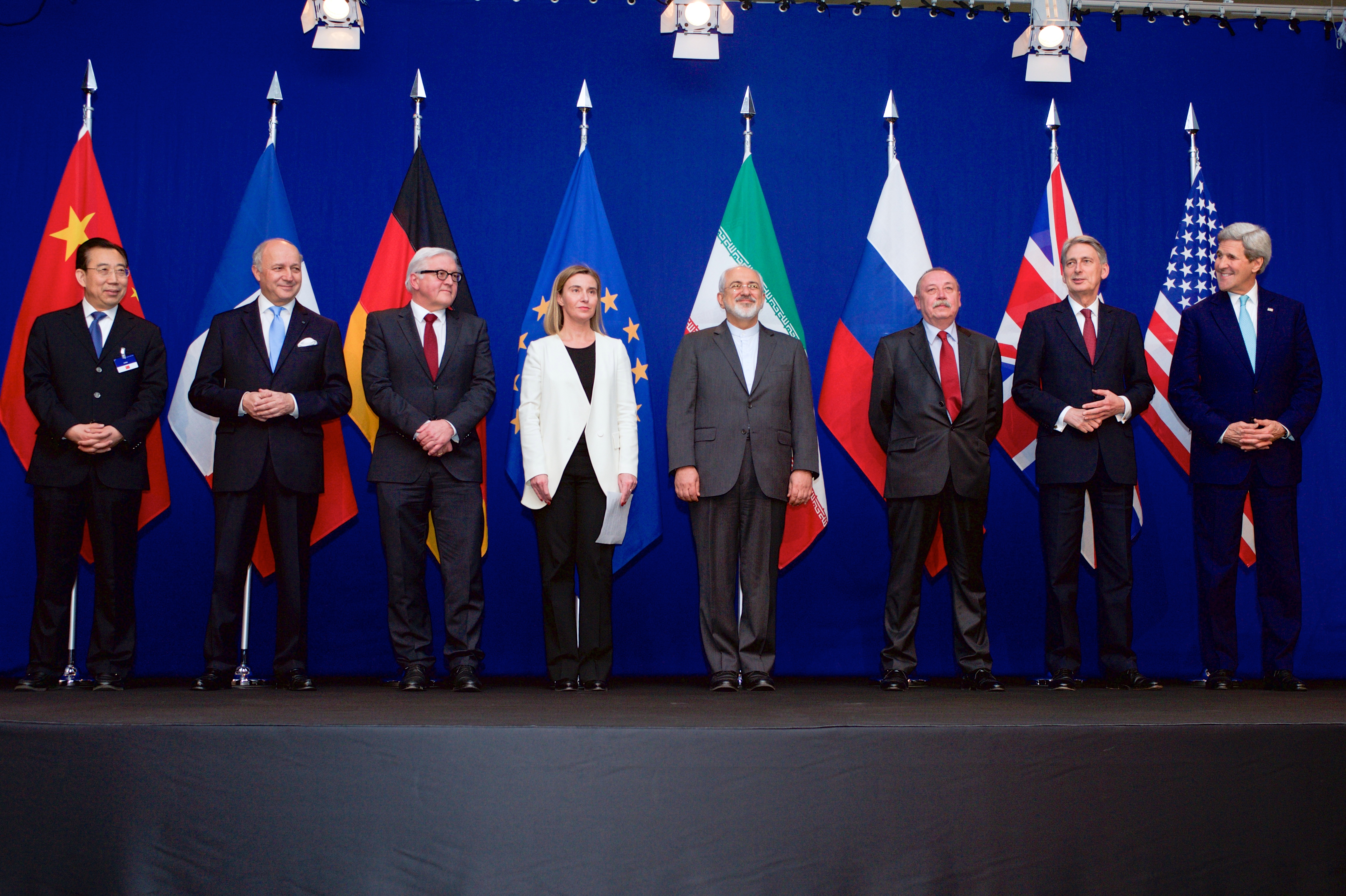Nuclear disarmament: Diplomacy works
The Trump administration has taken actions in recent months that have raised tensions over nuclear weapons with both Iran and North Korea. In both cases, diplomacy can be used to build trust and avoid military confrontation.
The Trump administration has taken actions in recent months that have raised tensions over nuclear weapons with both Iran and North Korea. In both cases, diplomacy can be used to build trust and avoid military confrontation. The following article was published in the November-December 2017 issue of NewsNotes.
On October 13, President Trump decided not to recertify the two-year-old nuclear deal with Iran, an important diplomatic agreement to curtail Iran’s nuclear program. The president has called the deal “unacceptable” and “an embarrassment” despite assurances by the International Atomic Energy Agency that Iran is in compliance with the agreement.
Now it is up to Congress to decide if the United States should remain in the deal. Congress has 60 days to act on whether to restore economic sanctions, take other actions against Iran or do nothing.
The fact remains that the Iran nuclear deal makes all of us safer.
After years of tense and delicate negotiations, the signatories (the five permanent members of the United Nations Security Council – China, France, Russia, United Kingdom, United States – plus Germany, the European Union, and Iran) agreed that
- Iran’s uranium stockpiles will be considerably reduced;
- Various uranium enrichment activities either will be stopped or greatly limited;
- The International Atomic Energy Agency will have regular access to its nuclear facilities.
In return, the crippling economic sanctions against Iran were lifted.
The Iran nuclear deal is a critical step toward nuclear non-proliferation and, ultimately, nuclear abolition. It strengthens the Nuclear Non-Proliferation Treaty and stimulates development of a Nuclear Weapons-Free Zone in the Middle East, a goal repeatedly supported by the nations of the world at the United Nations since 1974.
The agreement is a concrete example of the value of international cooperation and skilled diplomacy in preventing war and stopping the spread of nuclear weapons. It has the potential to reshape much of the Middle East by ending the international isolation of Iran and opening the door for Iran to play a more active role in regional politics.
More than 750 Catholic leaders signed a letter to President Trump and Congress in support of diplomatic efforts to defuse rising tensions over nuclear weapons not only with Iran but also North Korea. The leaders of dozens of religious congregations and officials at Catholic organizations said they are concerned by the president’s recent threats to “totally destroy” North Korea and to withdraw the U.S. from the Iran deal because both actions would bring the world “to the brink of nuclear catastrophe.”
“Responsible, moral leadership would recognize the Iran deal as an important example of successful diplomacy and conflict transformation that engaged many nations in an arduous, nonviolent process to build trust and avoid military confrontation. Similar honest and respectful, if difficult, diplomatic engagement should mark our approach to North Korea,” the letter said.
Bishop Oscar Cantu of Las Cruces, New Mexico, chairman of the Committee on International Justice and Peace for the U.S. Bishops Conference, sent a similar letter to Secretary of State Rex Tillerson on October 3. Bishop Cantu urged that the U.S. recertify Iran nuclear deal based on assurances of Iran’s compliance from the International Atomic Energy Agency. Not doing so would weaken any incentive for North Korea to negotiate about its nuclear weapons program, the bishop said.
Faith in action: Tell Congress that the U.S. should remain in the Iran nuclear deal.
Photo: The ministers of foreign affairs from China, France, Germany, the European Union, Iran, Russia, United Kingdom, United States, Germany, and Iran while announcing the framework of a Comprehensive agreement on the Iranian nuclear program in Switzerland on April 2, 2015. Photo by U.S. Department of State and available in the public domain.

